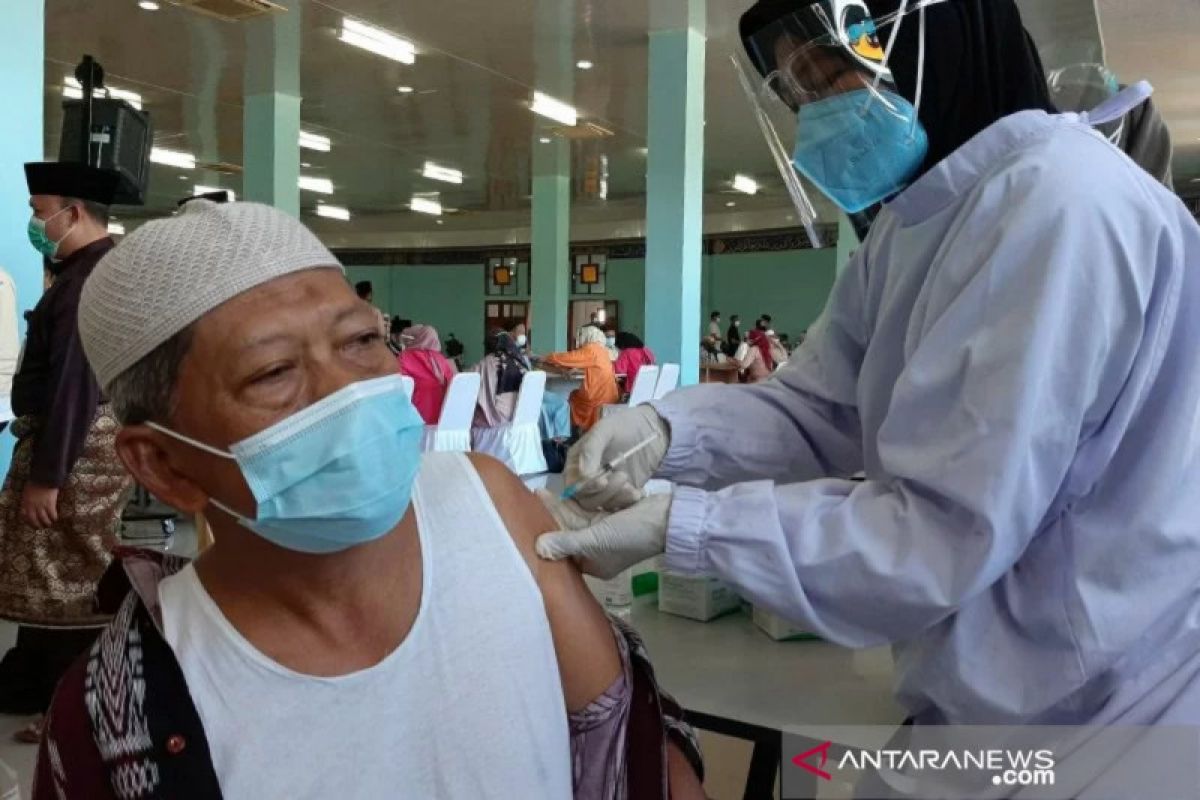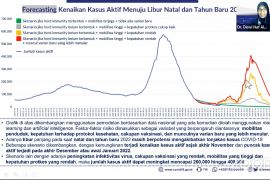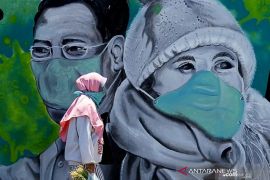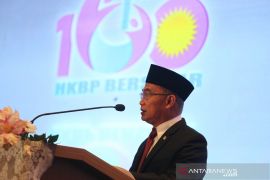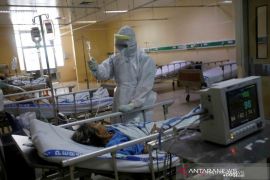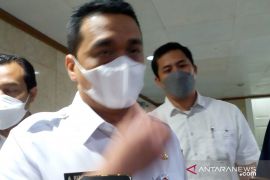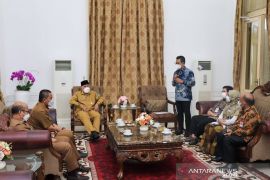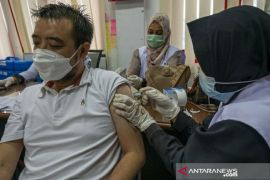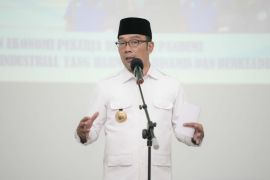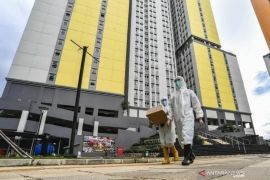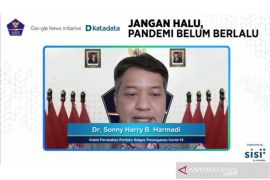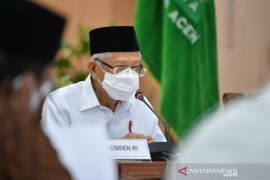There will be national uniformity. It has been decided that the regulation that applies within Java-Bali and outside it will have the same ruleJakarta (ANTARA) - Indonesia is slowly recovering from the health crisis caused by the COVID-19 pandemic, as cases decline and people's daily activities return to a new normal.
Currently, COVID-19 cases in Indonesia have decreased drastically from the peak of the pandemic in July 2021, with 56 thousand cases per day.
Based on the government's data, currently, around 500 cases of the infection are recorded per day, with the bed occupancy rate in hospitals being also low, at around three percent.
With the number of cases consistently decreasing and the positivity rate below one percent since November 6, 2021, the US’ Centers for Disease Control and Prevention has added Indonesia to its list of “low risk” travel destinations.
Recently, the European Union also announced a similar decision by adding Indonesia to its list allowing non-essential travel to the bloc, based on positive developments in epidemiological conditions in Indonesia.
However, such improvement should not be taken for granted, considering that in many parts of the world, including in Europe and neighboring countries, such as Singapore and Malaysia, the number of COVID-19 cases are currently on the rise, partly due to the spread of the Delta Plus AY.42 variant.
Epidemiologist from Airlangga University Laura Navika Yamani arned that the COVID-19 pandemic still exists in Indonesia, so people must stay vigilant against the virus.
"This means that the World Health Organization has not revoked the status of the global pandemic. The threat of COVID-19 is still present, even though some countries, including Indonesia, have low case numbers, and have been able to control the spread of cases," Yamani remarked.
Towards the end of the year, Laura has advised people to not underestimate the spread of the coronavirus despite sensing an improvement in the current situation.
"I think people need to continue to implement the health protocols," she noted.
In addition to maintaining health protocols, she urged the government to enforce strict controls at the entry points of the country to prevent transmission of new variants from international travelers that can be causal to imported cases.
Laura added that the mobility of domestic travelers was not as much a cause for concern as compared to the arrivals of foreign travelers, who visit Indonesia.
“We must be worried more about the possibility of imported cases entering Indonesia, especially if it caused by the more dangerous variant, such as Delta, with higher transmission characteristics and caused a worse condition for people, who are infected by it,” she emphasized.
To tackle a potential surge in cases, the government has been striving to ramp up coronavirus vaccinations.
At least 86.27 million Indonesians have been fully vaccinated against COVID-19 as of November 18, 2021.
According to data provided by the COVID-19 Handling Task Force, the number of people fully vaccinated against the virus has reached 41.42 percent of the total target of inoculating 208.27 million citizens in order to achieve herd immunity.
"Vaccination coverage is essential for dealing with the surge in cases that is starting to occur. Efforts must be made to achieve it (the target) before the third (COVID-19) spike occurs," spokesperson for the task force, Wiku Adisasmito, noted.
He appealed to the public to not be picky about the vaccine brand used for vaccinations.
The spokesperson emphasized that all vaccines used under the national vaccination program had been approved for safety, quality, and effectiveness, based on tests conducted by the National Agency of Drug and Food Control (BPOM) and monitored by related institutions and professional organizations.
In addition to increasing vaccination coverage, the government is imposing stricter rules to prevent COVID-19 infections during this year’s Christmas and New Year celebrations.
Hence, the government has decided to implement the Public Activity Restriction (PPKM) Level Three in all regions to restrict public mobility and to prevent a spike in the number of COVID-19 cases after the end of year holidays.
All regions in Indonesia, including those where PPKM Level One and Two are imposed, will apply PPKM Level Three.
"There will be national uniformity. It has been decided that the regulation that applies within Java-Bali and outside it will have the same rule," Coordinating Minister for Human Development and Culture Muhadjir Effendy stated.
The PPKM Level Three will be in effect starting from December 24 to January 2, 2021, Effendy remarked.
Related news: People's pickiness over vaccine brands hindering COVID vaccinations
Under the end-of-the year policy, fireworks show and celebration events that result in mass congregation of people will be completely banned, he noted.
Meanwhile, Christmas celebrations, tourism, and shopping center visits will be adjusted in accordance with the PPKM Level Three policy.
The PPKM Level Three policy contained in the previous instruction mandates a maximum 50-percent capacity at places of worship, movie theatres, and eating places.
The maximum capacity for shopping centers is 50 percent, and they could only open until 21:00 p.m. local time by applying stringent health protocols.
In addition, public facilities, such as the town square and open field, are closed.
Related news: People's pickiness over vaccine brands hindering COVID vaccinations
Health Minister Budi Gunadi Sadikin asserted that public compliance with health protocols during celebrations of major religious holidays and the New Year holiday was the key to controlling the COVID-19 pandemic.
"We do not know whether this pandemic is over yet. There are still many uncertainties that we have to face, especially in the big holidays this year and next year, be it the Christmas, New Year and Eid holidays," he stated.
To this end, Budi has urged the people to remain disciplined in wearing masks, getting vaccinated, and accessing the ‘PeduliLindungi’ application when they are in public spaces as well as continuing to conduct testing and tracing on individuals found to be symptomatic and had come in close contact with infected people.
He further emphasized that health protocols, surveillance, and vaccinations are indispensable measures that have been effective in helping Indonesia to control the pandemic so far.
"This would not have been possible without also the support and hard work of all health workers in remote parts of Indonesia," he added.
Related news: Ready to fight any lawsuit over raw material export ban: Widodo
Related news: Jokowi outlines Indonesia's green economy strategy
Editor: Fardah Assegaf
Copyright © ANTARA 2021
